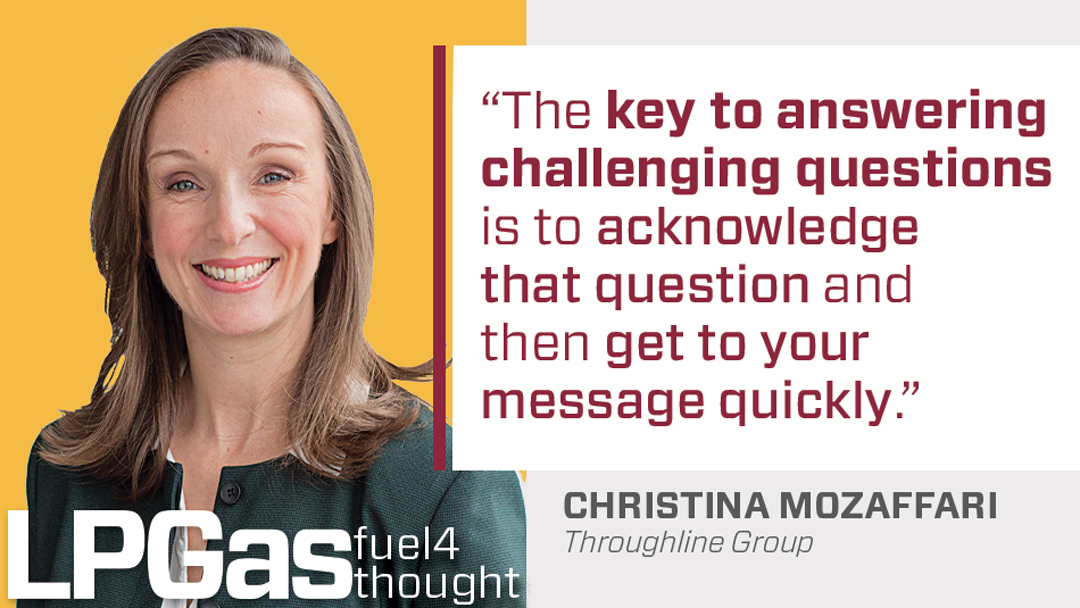Practical media training for propane
How often does the local news call your retail propane business to get a quote for a story?
Maybe your answer is never. Or maybe you have a good relationship with local reporters. Regardless, Christina Mozaffari says media training is important if you are engaging in public discussions about propane.
Mozaffari is a partner at media training company Throughline Group and a former NBC News producer. She presented earlier this year at the Propane Education & Research Council’s (PERC) Energy for Everyone Marketing Conference in Minneapolis.
Importance of media training
The people who get the most out of media training are those who think about it beyond just media interactions, Mozaffari says. Media training teaches you to deliberately get your messages across to your audience.
“It’s very easy to look at media training and say, ‘The media doesn’t call me, so I don’t need it,’” she says. “It’s much more important to think about this as a deliberate, proactive form of communication.”
A propane retailer’s interaction with the media also could prove helpful in situations besides speaking with the local news. Besides media interviews, some scenarios of public discussions could include:
- Engaging a community board about why propane should be part of a new building.
- Participating on an energy panel and talking about the future of propane.
- Talking to the local school board about purchasing propane buses.
Create your message about propane
A message should include a complete idea, reflect your goals, address the audience’s needs and have recurring themes.
Mozaffari suggests no more than three messages per interview. It takes seven to 15 exposures to a message for someone to gain awareness, learn, change or take action, she says.
“One of the best things that an organization can do is to have some messaging,” Mozaffari says. “How do you get your message out to reinforce the values of your business?”
She also recommends thinking about your target audience.
“Who is the audience who may hear this message and take the action you want? And how do you speak to them about your priorities?” Mozaffari adds. “That is a foundational place to start with communications.”
Conquer challenging questions
“The key to answering challenging questions is to acknowledge that question and then get to your message quickly,” Mozaffari says.
She recommends practicing what she calls the ATMS:
A: Acknowledge the question with a brief answer; don’t ignore it.
T: Transition into your prepared message quickly.
M: Message for your audience is shared.
S: Sell (or call to action) if there is something you want the audience to do.
“The reason that this technique is so effective is because you’re acknowledging the question,” she says. “You’re not just ignoring or dodging it … and getting to your message quickly. It helps you keep your authenticity as a spokesperson while staying out of trouble.”
Some of the toughest questions might come from customers. Mozaffari suggests asking your technicians in the field about what difficult questions customers have asked them.
How to practice for media interactions
Becoming an active consumer of media is a great way to remain engaged, Mozaffari says.
Look at other energy providers or transportation companies, and see the techniques they implement during interviews or media interactions.
“When you identify what you think somebody did well, you can learn from that and implement it into your own communications,” she says.
For more on media training, visit throughlinegroup.com, check out the book “The Media Training Bible” by Brad Phillips, CEO of the Throughline Group, and use the resources and messaging developed by PERC at propane.com.


















